My day begins at Miyanosaka Station in Setagaya Ward, where I take a short walk to Gotokuji Temple. This temple, which covers an impressive 50,000 square metres, is home to a three-storey wooden pagoda, Shugetsuen Gardens, Jizo Hall, a Main Hall, stone lanterns, a Bell Tower, and the tomb of the Ii Naotaka family.
As I wander around the temple grounds, I am surprised to discover a collection of one-thousand maneki-neko statues (also known as “beckoning cats”) scattered throughout the temple. Every time I think I’ve seen them all, I turn a corner and find even more on the other side of the temple. They are truly everywhere.
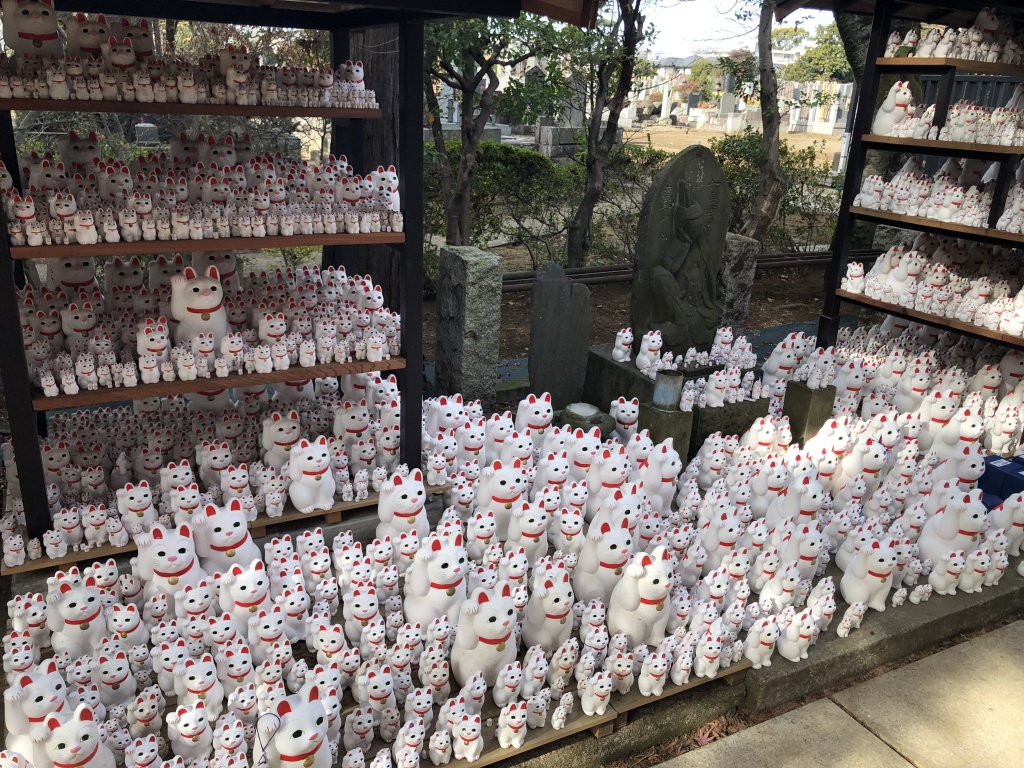
According to legend, the daimyo Ii Naotaka was out hunting with falcons when he was saved from a lightning bolt by a cat named Tama. Naotaka had taken a seat on a wooden bench outside this very temple when Tama beckoned him inside. Moments later, a lightning bolt struck the wooden bench where he had been sitting. This act of kindness saved Naotaka from certain death, and in gratitude, Naotaka is said to have placed one-thousand lucky cat statues throughout Gotokuji Temple.
Maneki-neko statues are popular as charms for good fortune and are believed to bring luck in areas such as business success, home safety, and the fulfilment of prayers, and protection from lightning bolts.
I leave Gotokuji Temple and take the train over to Shimokitazawa, a neighbourhood known for its bohemian atmosphere and abundance of vintage and retro shops. As I stroll through the streets, I am surrounded by a sea of trendy fashion stores, coffee shops, and gastro pubs offering craft beers and flat whites. Even the local Seven Eleven here is enveloped in the rich, heady scent of coffee.
The area is also home to a vibrant music scene, with rock music blaring from every retro used clothing store. As I walk, I pass fellow foreigners who eye me up with pretentious looks. Distasteful graffiti adorns some of the vending machines, and I notice another vending machine selling what appears to be overpriced Craft Cola. The label says it is made from “natural water,” whatever that means.
I decide to leave the bustle of Shimokitazawa behind and take a break exploring some nature. Luckily for me, Setagaya Ward also contains the only valley within the 23 wards of Tokyo: Todoroki Ravine Park. Along the Yazawa River sits the Golf-bashi Bridge, a striking red steel arch bridge named for a golf course on the other side of the river.
As I begin to wander downstream, I notice a sign warning against going near the river during heavy rain. Remarkably, I’ve been in Japan for two months and it has only rained twice. The sign states that during rainfall the valley can easily flood.
I pass trees of zelkova, bamboo-leaf oak, konara oak, and Japanese mountain cherry that line up on either side of the river, creating a scenic gorge. The air is crisp and refreshing, the water is still and calm, a peaceful contrast to the bustling city. As I walk further downstream, nature embraces me, enveloping me in its tranquillity.
I come across Todoroki Fudo Temple, founded in the 7th century by the monk Gyoki and dedicated to Aryacalanatha. Below sits the twin waterfalls of Fudo-no-Taki, with the water spilling from the faces of yellow-eyed statues. The waterfalls are believed to have miraculous powers. Legend has it that the waterfalls at Todoroki Valley sprang up when the temple was founded, and it was once said that the water would roar like thunder when it hit the rocks, giving the valley its name. The waterfalls are a charming sight, and the old shrine adds to the peaceful atmosphere of the valley.
There are over thirty springs within Todoroki Valley, and the spring water here was designated as one of “Tokyo’s 57 Best Waters” in 2003. I presume the water from the springs is of the “natural water” variety.
As I make my way back to the train station, the sky suddenly opens up with a thunderous applause. Rain spills down into the gorge and valley, and lightning splits the sky, illuminating the landscape in a brilliant flash. Instinctively, I go in search of a cat.
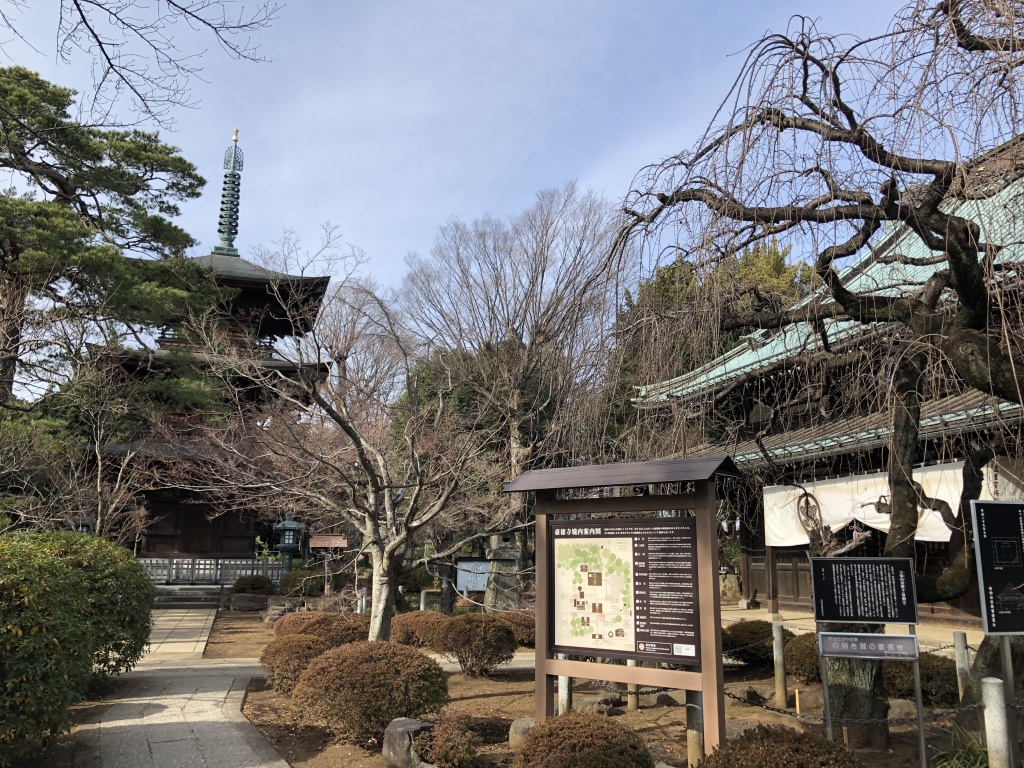
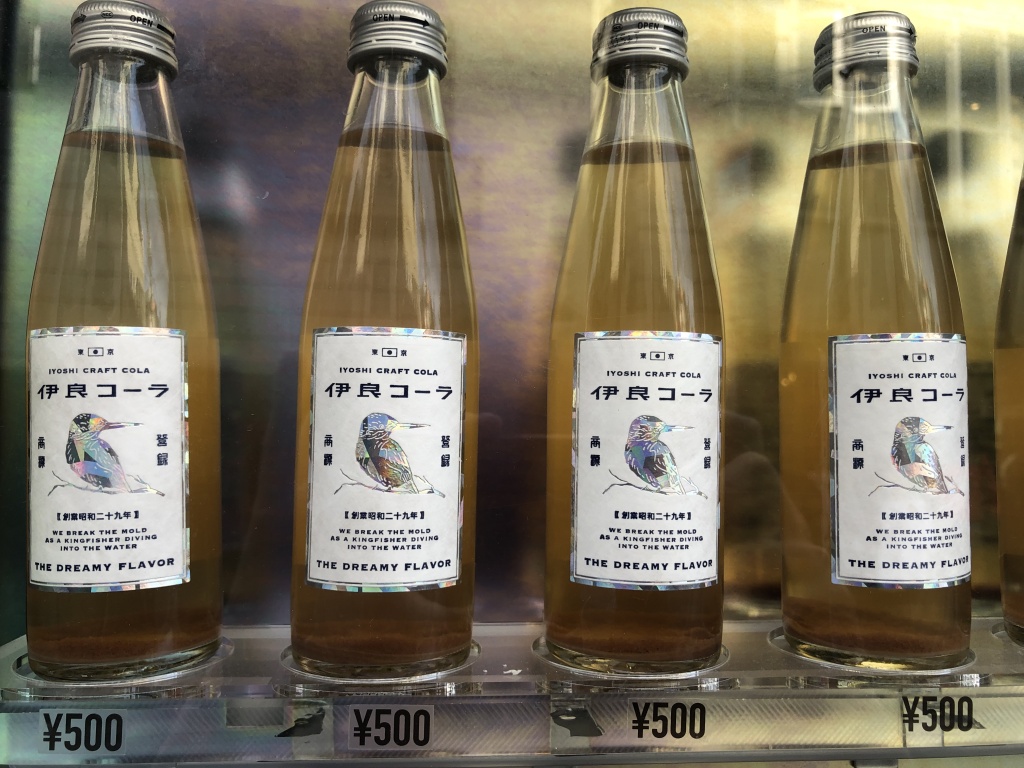
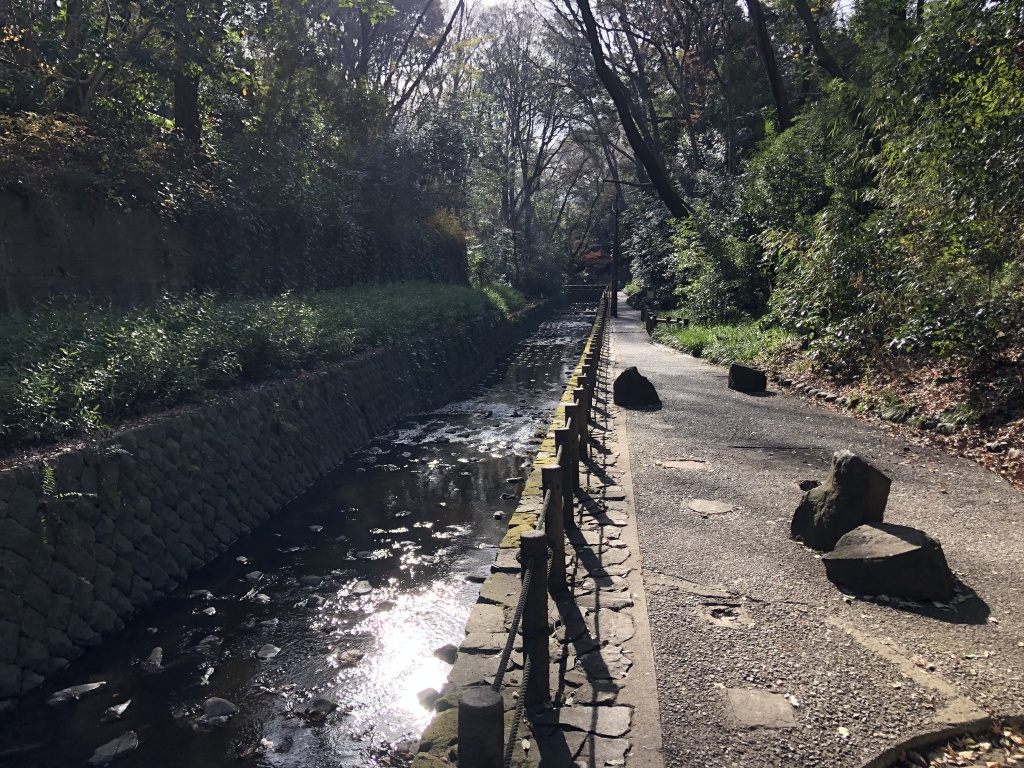
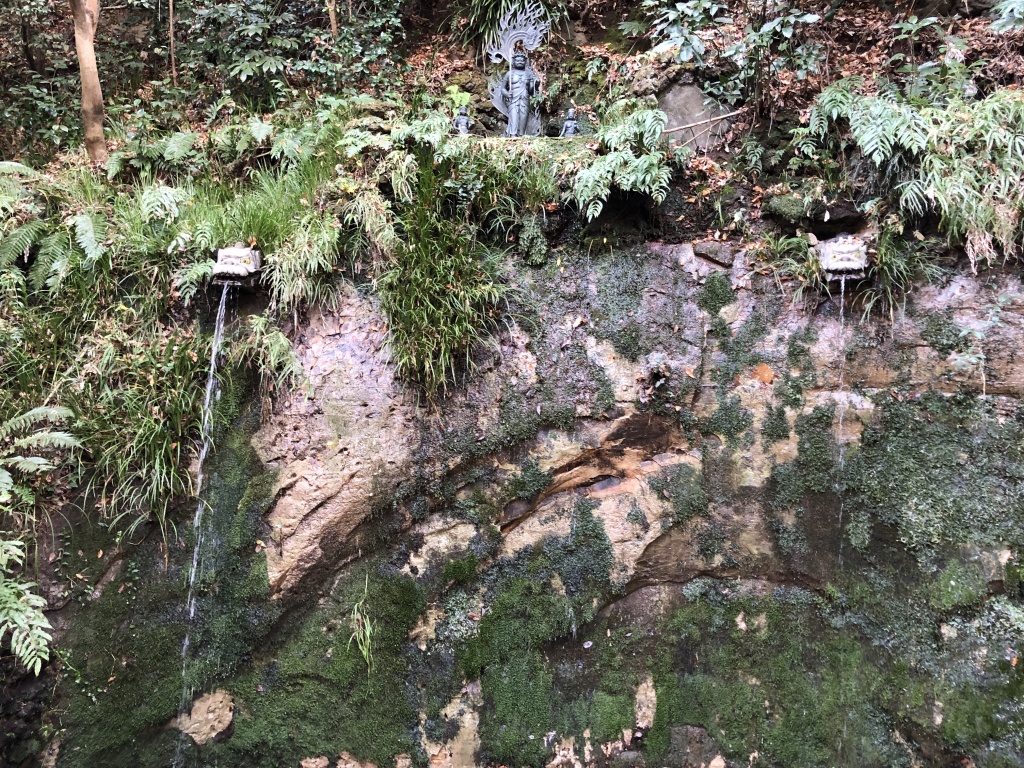





![sewertemple[1]](https://japanising.com/wp-content/uploads/2015/06/sewertemple1.jpg?w=630)
![thewatchtower[1]](https://japanising.com/wp-content/uploads/2015/06/thewatchtower1.jpg?w=630)
![insidetower[1]](https://japanising.com/wp-content/uploads/2015/06/insidetower1.jpg?w=630)
![deserted[1]](https://japanising.com/wp-content/uploads/2015/06/deserted1.jpg?w=630)
![closedsorryweare[1]](https://japanising.com/wp-content/uploads/2015/06/closedsorryweare1.jpg?w=630)
![noupskirting[1]](https://japanising.com/wp-content/uploads/2015/06/noupskirting1.jpg?w=630)
![lovehoteltemple[1]](https://japanising.com/wp-content/uploads/2015/07/lovehoteltemple1.jpg?w=630)
![hoops[1]](https://japanising.com/wp-content/uploads/2015/07/hoops1.jpg?w=630)
![hoshoji[1]](https://japanising.com/wp-content/uploads/2015/07/hoshoji1.jpg?w=630)

![kingstreasurebox[1]](https://japanising.com/wp-content/uploads/2014/12/kingstreasurebox1.jpg?w=630)
![discoglasses[1]](https://japanising.com/wp-content/uploads/2014/12/discoglasses1.jpg?w=630)
![genmei[1]](https://japanising.com/wp-content/uploads/2014/12/genmei1.jpg?w=630)
![lanternsinthedark[1]](https://japanising.com/wp-content/uploads/2014/12/lanternsinthedark1.jpg?w=630)
![blueleaves[1]](https://japanising.com/wp-content/uploads/2014/12/blueleaves1.jpg?w=630)
You must be logged in to post a comment.